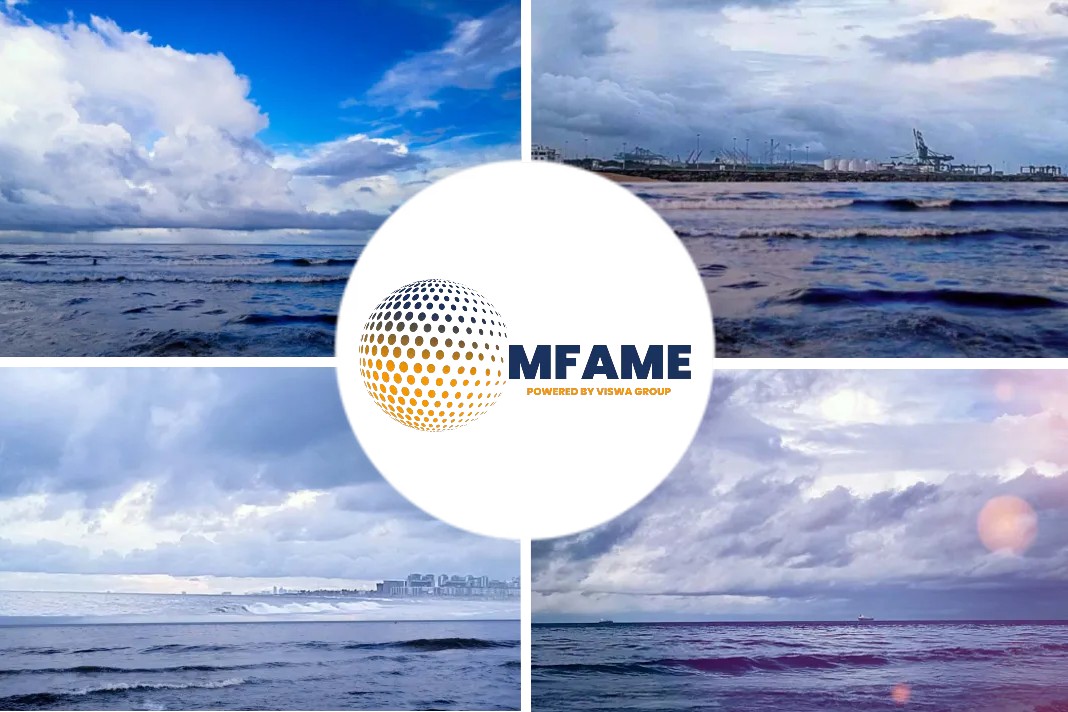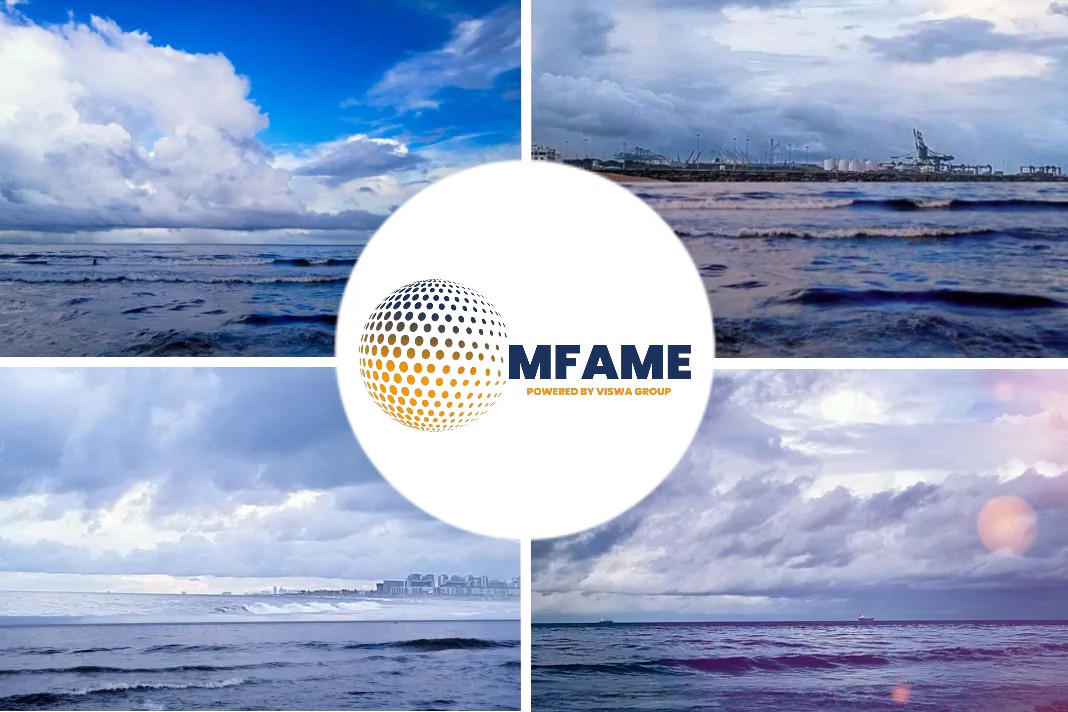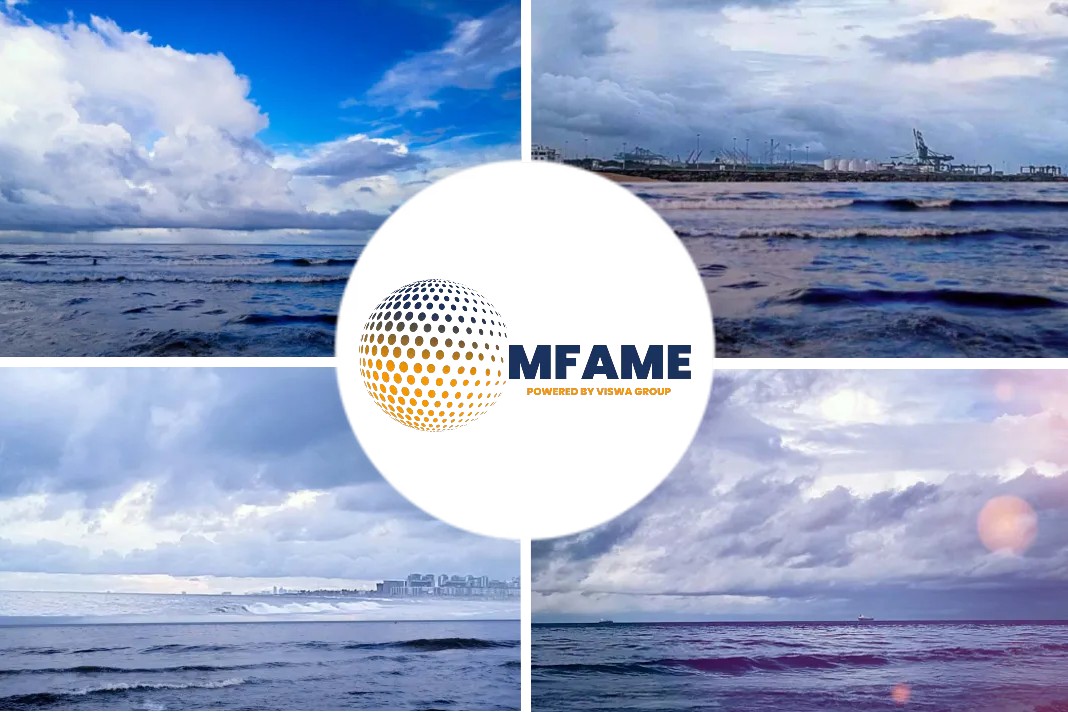In a major development, the IMO has said that the Mauritius Oil Spill appears just like a skin cream and isn’t a major threat, reports Forbes.
The statement issued on September 15 stands by the comments of its representative in Mauritius who oversaw the disastrous oil spill clean up and salvage operation that is still ongoing.
An Expert Supported by IMO
In his comments to national media in Mauritius, the IMO representative had described the toxic ship oil spilled as being “Just like skin cream.”
The interruption of service was caused by a cyber attack against our IT systems. IMO is working with @UN IT and security experts to restore systems as soon as possible, identify the source of the attack, and further enhance security systems to prevent recurrence. pic.twitter.com/EzUQzqXMEF
— IMO (@IMOHQ) October 1, 2020
In a statement on their website (which had been down last week due to a cyberattack against the IMO), the UN Agency not only described their Mauritius oil spill representative, Matthew Sommerville, as an ‘expert’, but also explained that he was supported by an entire IMO team.
“The IMO Secretariat is also supporting the response [to the Wakashio oil spill], by providing backstopping to the IMO expert in the field at the time of his deployment, and has been maintaining close liaison with the affected country, the flag State and technical partners throughout in order to provide support and assistance, as required.”
What does this mean for the controversy?
This implies all of his comments, which the Mauritian media were reporting daily to the island nation who had been impacted by the worst oil spill in their history, had the full support of the entire organization of the UN’s International Maritime Organization.
Over the course of August and September, Mauritius experienced a massive oil spill from the Panama-flagged, Japanese-owned vessel, the death of over 50 whales and dolphins, the loss of four crew of a Wakashio salvage support vessel and the deliberate sinking of the 300 meter front section of the ship into an unspecified location.
At the center of the controversy was the role of the UN global shipping regulator, the UN’s International Maritime Organization.
The IMO representative – who also positioned himself as the lead coordinator for all UN agencies on the island during the oil spill – has been at the center of the controversy for a set of outrageous statements when advising the Mauritian Government, civil society, business leaders and national media of Mauritius.
In a televised appearance at the site of the oil spill, Somerville described the toxic ship oil as being “Just like skin cream,” rubbing the oil over his palms and claiming that there would be no adverse health impacts (see the clip 2 mins in the video below). His claim appeared to be supported in the same video by the technical lead of Le Floch Depollution, the French company appointed by the Japanese insurer of the Wakashio, Japan P&I Club to oversee the clean up operation.
WHO Intervenes To Clear the Air
In response to the IMO’s claims, the World Health Organization had to rush out an urgent statement on September 12, saying, “Oil contains mainly hydrocarbons (lipophilic substances), Sulphur and even heavy metals, all of which are both acute and chronically toxic to marine and terrestrial wildlife, as well as humans.
Acute and short-term toxicity: the immediate health risk to humans from accidental ingestion or prolonged exposure (especially those cleaning polluted areas without adequate protection) is irritations of the skin and mucous membranes including respiratory mucous membranes, digestive disorders with vomiting, diarrhea, toxic hepatitis, headaches, etc.
Medium- and long-term toxicity: the worst part is that the substances mentioned above are carcinogens that can contaminate the food chain. These substances are toxic with material and functional accumulation. The consequences are devastating for the health system, which will have to deal with an explosion of diseases whose care is extremely costly.”
IMO Claims Inadequate Journalism
The IMO Headquarters, on the other hand has responded by claiming unspecified inaccuracies in the reporting, and emphasizing that the IMO representative was not acting alone, but with the entire UN organization behind him.
This presumably means that they stand by some of the other controversial statements made by the representative when in Mauritius.
The IMO have been given several weeks to respond to these points, including offering themselves for a live interview which they then rescinded. For a $78 million a year UN agency 74% of whose budget is paid for by taxpayers around the world, they have proven evasive to any form of international media scrutiny or accountability in almost three months since the grounding of the Japanese vessel and major oil spill.
They have refused to allow a senior IMO official speak on the record since the grounding of the Wakashio or the oil spill began on August 6.
It was almost an afterthought for the Secretary General of the IMO, Kitack Lim, to add a passing reference to the Wakashio oil spill on September 16, fifty three days after the grounding and major oil spill amid a network of internationally protected biodiversity reserves, whereas more prominent mentions had been given to the Gulf Livestock 1 sinking (a Secretary General comment within 9 days of the sinking) and Beirut Port explosion (a comment 1 day after the explosion). It cannot be as if there are too many international shipping incidents to be concerned about. Kitack Lim was nominated for a new four year term starting January 1, 2020 until December 2023.
Scientists Call for IMO Accountability
Mauritius is still under a state of National Environmental Emergency, over 100,000 have been on the streets of the capital protesting, democratic accountability is being suppressed in the country, Mauritius is a member of the IMO, and yet the IMO continues to refuse to have a senior official speak on the record.
Appearing on BBC News on September 17, former President of Mauritius and internationally renown biodiversity scientist, Dr Ameenah Gurib-Fakim called for greater accountability from the IMO.
“We heard from the representatives of the IMO that Mauritius should not be receiving too many independent scientists as it would overwhelm the country. Come on!
We need the Wakashio investigation to be backed by independent science, we need the best brains in this field to come forward to help us, and also, we were very disappointed by the statements made by the representative of the IMO.
One of the statements he made was that if there was anyone who would suffer from cancer it would be him, as he had been exposed to Volatile Organic Compounds (VOCs) for thirty years. This is completely out of place. We were shocked by this!”
#oil spill Community and volunteers @work bravo Mauris pic.twitter.com/Lt1njKRvM5
— Christine N Umutoni (@CNumutoni) August 10, 2020
Angry Citizens Seek Transparency
Citizens across Mauritius have been angry at needing to put themselves in harm’s way of the oil and lead a large scale voluntary protection and clean up effort due to insufficient oil protection equipment being carried on board the Wakashio.
The lack of transparency in the oil spill and salvage response has added insult to injury.
This was a clear regulatory oversight by the International Maritime Organization, who did not ensure sufficient oil protection equipment were carried by vessels, where the average container ship size has ballooned by over 90% in the last 20 years alone, requiring twice the size of port and refueling infrastructure.
The Wakashio had been carrying 3800 tons of fuel, which is over 1 million gallons of heavy ship oil. This is the equivalent of filling up over 83,000 Toyota Corollas (whose tank capacity is 13 gallons). By way of comparison, the 83,000 worth of car fuel tanks that Wakashio was carrying was more than one in three (38%) of the total number of cars in Mauritius, lined up in that one spot when the ship crashed into the island. This was not a low risk oil spill.
During the interview on the BBC, the former President – which is a constitutional position similar to the Queen, with executive power lying with the Prime Minister – said that all the international organizations in Mauritius owe citizens of Mauritius answers.
We have had representatives from the Government of Japan, Government of Panama, the IMO and other international organizations, and yet we have not been informed of the most basic facts.
We still do not know how much oil was leaked into our waters, to what extent the clean up procedures have begun and what environmental impact assessment they conducted prior to the clean up – with independent scrutiny – to ensure further damage is not caused by the cleanup, whether through use of biological, low grade detergent, chemicals, or steam pressured water that could be killing the beach bacteria that live in the salty conditions of the coast.
We should have been collecting samples extensively by now. Why weren’t samples collected from day 1? Even basic questions such as where was the Waksahio sunk have not been answered? This is totally unacceptable.
There has been no transparency whatsoever, and this is the biggest ecological disaster our country has faced. We are still in a state of National Environment Emergency.
Global Ship Regulation Under Question
“It’s been almost three months, and there has never once been a joint communique from all of the international organizations – including the IMO – who have been operating in the country. It’s as if they have something to hide.”
Dr Ameenah Gurib-Fakim is an award winning international biodiversity scientist and former President of Mauritius. The IMO representative did not once speak to her during his time in Mauritius, despite her prominent role in the country and also being on the front lines several times to assist with the clean up and assess the impact on local biodiversity.
So much for the IMO ‘empowering women in the maritime community,’ one of the IMO Secretary-General’s main priorities last year.
The IMO have also refused to answer questions posted by international organizations such as Greenpeace and Sea Shepherd whether international laws had been broken with the decision to sink the front section of the 300 meter vessel.
There are at least seven international environmental laws that have been highlighted.
The Wakashio was no ordinary ship accident. Urgent reforms are needed to the industry and the regulator.
The United Nations Secretary General, Antonio Gutteres has had to make a series of interventions into global shipping this summer – three times for the welfare of seafarers, and again for an oil supertanker off the coast of Yemen about to disintegrate, risking 1 million barrels of oil leaking into the coastlines of 6 Red Sea countries and impacting 150 million people.
With the IMO endorsing such statements such as ‘oil is like skin cream’ and avoiding any media scrutiny, serious questions are being raised about the leadership of the IMO and its ability to safely regulate global shipping.
Did you subscribe to our daily newsletter?
It’s Free! Click here to Subscribe!
Source: Forbes




























